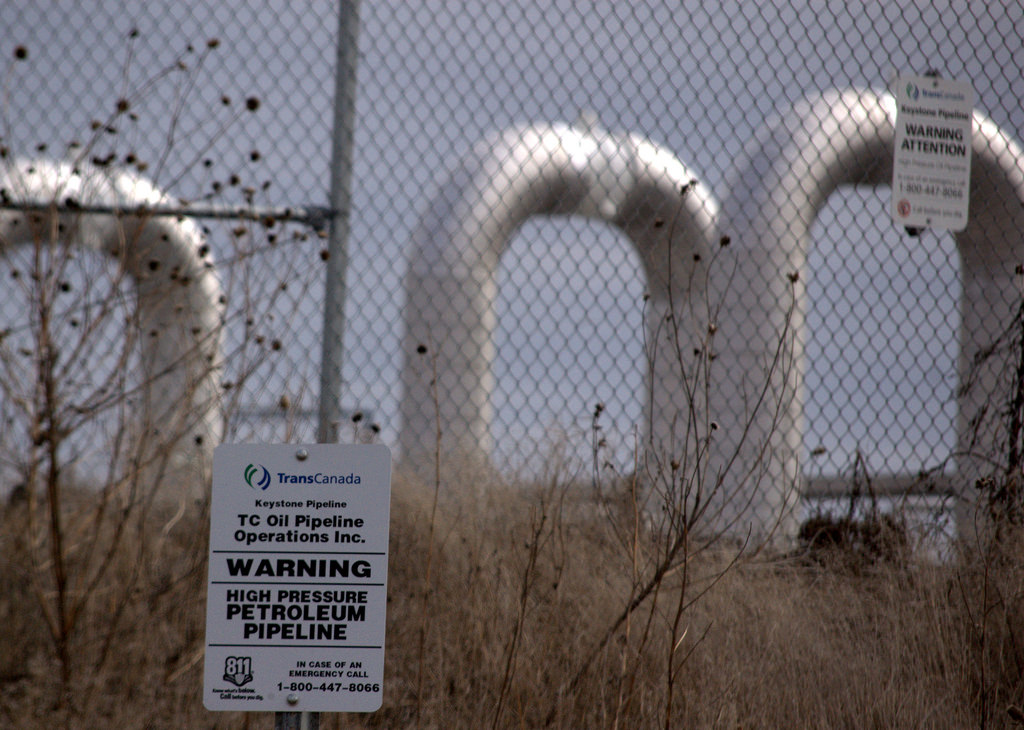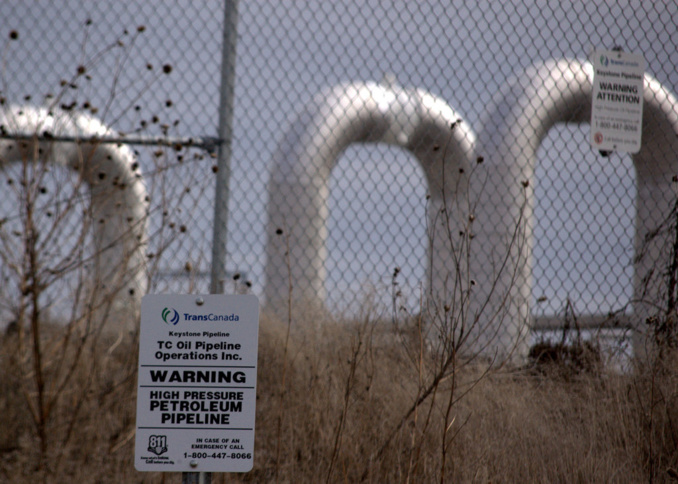The prime cost of extracting superheavy oil is very high, even in a career way. Yet, prices over $ 100 per barrel allured Canadian and foreign companies. After the collapse of the oil market in late 2014, many believed that oil production in the country would decrease, but this did not happen. Production in neighboring US, having reaching a peak in April 2015, afterwards fell by more than 1 million barrels per day. The Canadian industry, however, kept growing, and no project was stopped since then. The central government and the government of the province of Alberta, where the world's largest deposits of bituminous sands Athabasca, Cold Lake and Peace River lie, provided oil industry support to ensure that they did not reduce production.
The Canadian Association of Petroleum Producers (CAPP) published a forecast for the industry’s development for short and medium terms. It is expected that the total production of liquid hydrocarbons in the country will grow by 39%, to 5.1 million barrels per day, from 2017 to 2030. At the same time, production of conventional oil and condensate should be maintained at the current level of about 1.5 million barrels per day, and the production growth will be provided by extra-heavy oil, which production by 2030 will reach 3.7 million barrels per day (53% more than in the previous year).
CAPP’s experts emphasize that production in Canada will continue to grow steadily in the next 18 months, despite the fact that investments in the oil sector have been declining since the end of 2014. Growth will be provided by projects launched before the oil market’s collapse and not stopped because of low energy prices. The first shipments of raw materials produced under these projects have entered the US market last week.
The extra heavy oil produced within these projects will ensure an increase in production of 270 thousand barrels per day in 2017 and 320 thousand barrels per day in 2018. Next year, the total volume of production of extra-heavy oil in Canada will reach 3 million barrels per day.
Analyst of IHS Markit consulting agency Kevin Birn is confident that Canada will give way only to the USA in terms of oil production growth rates in the coming years. For the first time in history, Canada will become an influential player in the global hydrocarbon market thanks to the extra-heavy oil produced in the province of Alberta.
However, Birn believes that the growth rate of production in Canada will slow down already in 2019 because of the decline in investment in recent years, and will not exceed 100 thousand barrels per day after 2020.
Canada and the US against OPEC
The increase in production in Canada will amount to about a third of the volume in 2017-2018, which should be reduced in the framework of the OPEC agreement (OPEC members and countries acceding to them). Participants in the North American oil market are confident that the oil industry of Canada and the US will nullify OPEC’s efforts, aimed at eliminating the excess supply of hydrocarbons in the world market.
The International Energy Agency and the US Energy Information Administration (EIA) believe that this year the US production will reach a record 10 million barrels per day due to increased production on shale structures. According to the EIA, last week US production was 9.338 million barrels per day. Moreover, the IEA expects that the trend of production growth in the US oil industry will persist in the next year.
Unexpected help
Donald Trump, having become President of the United States, began to implement his campaign promises, the most important of which is abolition of restrictions for the extraction and transportation of oil. In March of this year, Trump canceled previous President Barack Obama’s decision. Recall that the paper prohibits construction of Keystone XL oil pipeline, which will connect Alberta with Cushing, where the main commercial oil storage facilities in the US are located, and the Gulf Coast.
TransCanada company promised to complete the construction in the shortest time, although the exact date was not named. Experts believe that the project can be implemented within a year in the absence of opposition from environmentalists.
Keystone XL will increase the cost of Canadian oil and increase exports to the US, which will be an incentive for companies involved in development of bituminous sands in Alberta. In turn, US oil refiners will ensure loading of their plants, and the US will increase the supply of its light oil abroad.
source: ft.com
The Canadian Association of Petroleum Producers (CAPP) published a forecast for the industry’s development for short and medium terms. It is expected that the total production of liquid hydrocarbons in the country will grow by 39%, to 5.1 million barrels per day, from 2017 to 2030. At the same time, production of conventional oil and condensate should be maintained at the current level of about 1.5 million barrels per day, and the production growth will be provided by extra-heavy oil, which production by 2030 will reach 3.7 million barrels per day (53% more than in the previous year).
CAPP’s experts emphasize that production in Canada will continue to grow steadily in the next 18 months, despite the fact that investments in the oil sector have been declining since the end of 2014. Growth will be provided by projects launched before the oil market’s collapse and not stopped because of low energy prices. The first shipments of raw materials produced under these projects have entered the US market last week.
The extra heavy oil produced within these projects will ensure an increase in production of 270 thousand barrels per day in 2017 and 320 thousand barrels per day in 2018. Next year, the total volume of production of extra-heavy oil in Canada will reach 3 million barrels per day.
Analyst of IHS Markit consulting agency Kevin Birn is confident that Canada will give way only to the USA in terms of oil production growth rates in the coming years. For the first time in history, Canada will become an influential player in the global hydrocarbon market thanks to the extra-heavy oil produced in the province of Alberta.
However, Birn believes that the growth rate of production in Canada will slow down already in 2019 because of the decline in investment in recent years, and will not exceed 100 thousand barrels per day after 2020.
Canada and the US against OPEC
The increase in production in Canada will amount to about a third of the volume in 2017-2018, which should be reduced in the framework of the OPEC agreement (OPEC members and countries acceding to them). Participants in the North American oil market are confident that the oil industry of Canada and the US will nullify OPEC’s efforts, aimed at eliminating the excess supply of hydrocarbons in the world market.
The International Energy Agency and the US Energy Information Administration (EIA) believe that this year the US production will reach a record 10 million barrels per day due to increased production on shale structures. According to the EIA, last week US production was 9.338 million barrels per day. Moreover, the IEA expects that the trend of production growth in the US oil industry will persist in the next year.
Unexpected help
Donald Trump, having become President of the United States, began to implement his campaign promises, the most important of which is abolition of restrictions for the extraction and transportation of oil. In March of this year, Trump canceled previous President Barack Obama’s decision. Recall that the paper prohibits construction of Keystone XL oil pipeline, which will connect Alberta with Cushing, where the main commercial oil storage facilities in the US are located, and the Gulf Coast.
TransCanada company promised to complete the construction in the shortest time, although the exact date was not named. Experts believe that the project can be implemented within a year in the absence of opposition from environmentalists.
Keystone XL will increase the cost of Canadian oil and increase exports to the US, which will be an incentive for companies involved in development of bituminous sands in Alberta. In turn, US oil refiners will ensure loading of their plants, and the US will increase the supply of its light oil abroad.
source: ft.com



















